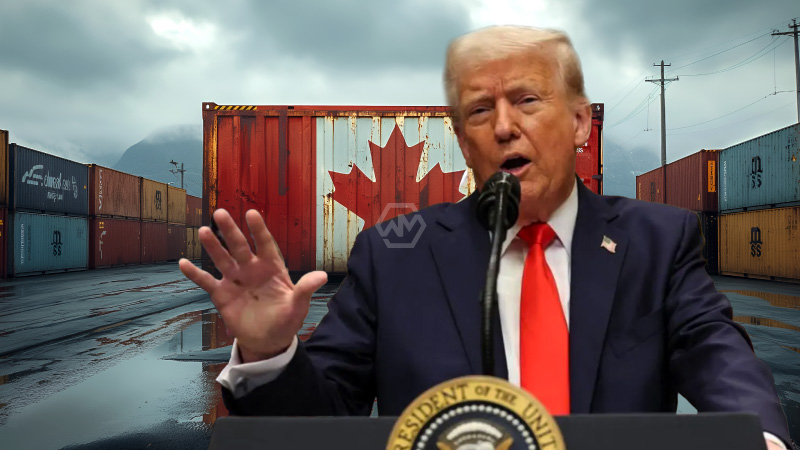- Trump raises tariffs on Canadian steel and aluminum to 50%, citing Ontario’s electricity surcharge.
- Canada vows to retaliate, warning of economic fallout and trade disruptions.
- Markets react negatively, with Wall Street experiencing sharp declines.
The ongoing trade dispute between the U.S. and Canada has intensified as former President Donald Trump announced a sharp increase in tariffs on Canadian steel and aluminum imports.
Adding fuel to the fire, Trump has also threatened to impose heavy tariffs on Canadian automobiles starting April 2 unless Canada removes what he describes as “abusive” trade barriers.
U.S.-Canada Trade Tensions Reach Breaking Point
The decision to hike tariffs has sent shockwaves through both economies, with industries scrambling to assess the fallout. Canadian officials, including incoming Prime Minister Mark Carney, have condemned the move, calling it a direct attack on North American trade stability. With Canada supplying half of U.S. aluminum imports and a significant portion of steel, industry leaders fear major disruptions.
Trump’s move comes amid broader economic uncertainties, with Wall Street showing significant losses following the announcement. The auto industry, which heavily relies on cross-border supply chains, is particularly vulnerable. Experts warn that if tariffs on Canadian vehicles take effect in April, it could lead to layoffs and production shutdowns in Canada’s key manufacturing hubs.
Ontario Premier Doug Ford has called for unity among Canadian businesses and policymakers to resist U.S. pressure. He has also urged American business leaders to push back against Trump’s trade policies, emphasizing that such measures could harm U.S. manufacturers that depend on Canadian raw materials. Meanwhile, industry leaders in the U.S. are lobbying against the tariffs, fearing cost increases and supply chain disruptions.
With markets already reacting, investors worry that the latest escalation could trigger further trade conflicts. The U.S. Chamber of Commerce has warned that a prolonged dispute with Canada could damage long-standing economic ties and slow economic growth. Analysts suggest that Canada may impose its own retaliatory tariffs, further straining relations.
As tensions between the U.S. and Canada reach new heights, the fallout from Trump’s tariff hike remains uncertain. With potential countermeasures from Ottawa and increasing economic concerns, both nations face a challenging road ahead in resolving their trade disputes.
“Trade wars are good, and easy to win.” – Donald Trump (2018)



